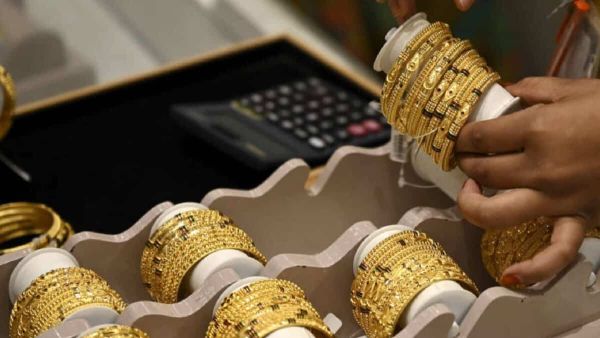
Hundreds of bakeries, tea stalls, and condiment stores across Karnataka stopped serving milk, tea, and coffee in a symbolic protest on Wednesday. The move came in response to what small traders describe as unfair tax notices issued by the state’s Commercial Tax Department under the Goods and Services Tax (GST) regime.
Vendors wore black armbands and temporarily suspended beverage sales to register their dissent. Labour activist Ravi Shetty, speaking at one of the protest sites, said, “Today we are wearing black bands on our arms. No bakery is selling milk. Only black tea will be available as a mark of protest.”
While core bakery operations continued, only black tea and black coffee were available at many counters—visually underlining the vendors' grievances.
What Is the Issue With GST Notices?
The discontent stems from a sweeping enforcement drive by tax authorities, who issued notices to several small vendors based on digital payment data collected between FY 2021–22 and FY 2024–25. The key threshold under GST law is that businesses providing services with an annual turnover above Rs 20 lakh, or selling goods above Rs 40 lakh, are required to register and pay GST.
Tax officials say it doesn’t matter whether payments are made via UPI, credit card, or cash—what matters is total turnover. However, many small vendors were caught off guard when authorities assessed their UPI receipts and issued hefty tax demands.
For instance, Shankargouda Hadimani, a vegetable seller from Haveri, said he received a notice for Rs 29 lakh in GST after his digital receipts were calculated at Rs 1.63 crore. “I only sell vegetables, which are exempt from GST. I file my returns regularly. I don’t know how I can pay such a huge amount,” he said.
What Is GST And Why The Confusion?
The Goods and Services Tax (GST) is a unified tax system that replaced multiple indirect taxes in India. While it simplifies tax compliance on paper, its implementation, especially among small businesses, has led to confusion. Many vendors believed that only registered GST businesses or those issuing tax invoices were liable. But now, some are realizing that even unregistered businesses making significant digital sales are being scrutinized.
Digital payments, widely encouraged during and after the pandemic, have ironically become a source of stress for vendors. Fearing high tax demands, many shops have switched to “cash only” modes of operation and posted “No UPI” signs.
Government Response
Amid growing unrest, Chief Minister Siddaramaiah has scheduled a meeting at 3 pm on Wednesday with representatives of small traders to address their concerns. Trader associations have already warned that if the GST notices are not withdrawn, they will escalate their agitation. A statewide bandh has been called for July 25, potentially affecting commerce across Karnataka.
-
2BHK flats scam in Hyderabad: Rs 85L collected, MLA’s assistant held

-
Afghanistan: 6 workers killed, several injured in coal mine explosion

-
Silver hits record Rs 1.15L per kg, gold crosses Rs 1L mark again

-
Andhra SIPB clears Rs 20,216 cr in fresh investments; 50,600 jobs in pipeline

-
Silver Hits Lifetime High In Delhi Markets, Gold Gains Rs 1,000 On Stockist Buying
